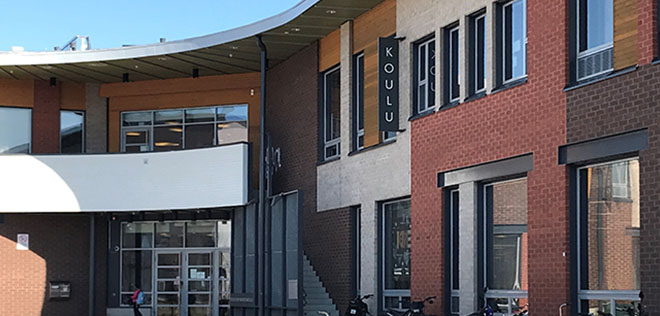Political representation matters for the distribution of local public goods across neighbourhoods

Poorer neighbourhoods are under-represented in Finnish municipal councils. This inequality in geographic representation also has policy implications as school closures are less likely in districts with better representation in the municipal council. High-income residents react to school closures by moving away from their neighbourhood. This may further exacerbate differences in geographic representation.

A new study by Oskari Harjunen, Tuukka Saarimaa and Janne Tukiainen of the VATT Institute for Economic Research (VATT), Aalto University and University of Turku shows that neighbourhoods with low income and education levels are underrepresented in Finnish municipal councils. The study also finds that municipal election candidates have a strong support base in their own neighbourhoods as they receive substantially more votes from residents in their own neighbourhood than from residents in other parts of the municipality.
- The under-representation is likely due to the combination of lower turnout in poorer neighbourhoods and the tendency of voters to vote for local candidates despite the fact that elections are held at-large. This incentivises politicians to cater to the voters in their own neighbourhoods, says Tuukka Saarimaa.
The study goes further and shows that neighbourhood level representation has a causal effect on the prevalence of local public goods in the neighbourhood. The probability of elementary school closures halves from about 20% to 10% when a candidate close to the school is randomly elected to the municipal council. This lottery election outcome results from ties in personal vote counts within the party lists.
Finally, the analysis reveals that high-income residents react to school closures by moving away from these neighbourhoods.
- Taken together, these findings show that residential sorting leads to inequality both in political representation and the distribution of public goods across neighbourhoods, which may further reinforce residential segregation, concludes Oskari Harjunen.
The study finds that the link between political representation and regional equality is more complex than previously understood.
- We need to carefully consider voter mobilization, election system engineering and housing policies to address issues in geographic inequality”, Janne Tukiainen argues.
The study used detailed geo-coded data on municipal election candidates, the electorate and elementary school closures spanning three Finnish municipal council terms from 2005 to 2017.
Further information:
Oskari Harjunen, Senior Researcher, VATT, +358 504 784 919, oskari.harjunen(@)vatt.fi
Tuukka Saarimaa, Assistant Professor, Aalto University, +358 50 477 0776, tuukka.saarimaa(@)aalto.fi
Janne Tukiainen, Professor, University of Turku; Associate Research Professor, VATT, +358 295 519 451, janne.tukiainen(@)utu.fi
Research:
Love Thy (Elected) Neighbor? Residential Segregation, Political Representation and Local Public Goods. Aboa Centre for Economics Discussion paper No. 138. 2021.
Janne Tukiainen
Oskari Harjunen
Tuukka Saarimaa
Education
Healthcare services
Local public finance and provision of public services
Municipalities and wellbeing services counties
Press release
Uutiset ja tiedotteet
education and training
inequality
local democracy
municipal finances
municipalities
regional policy

